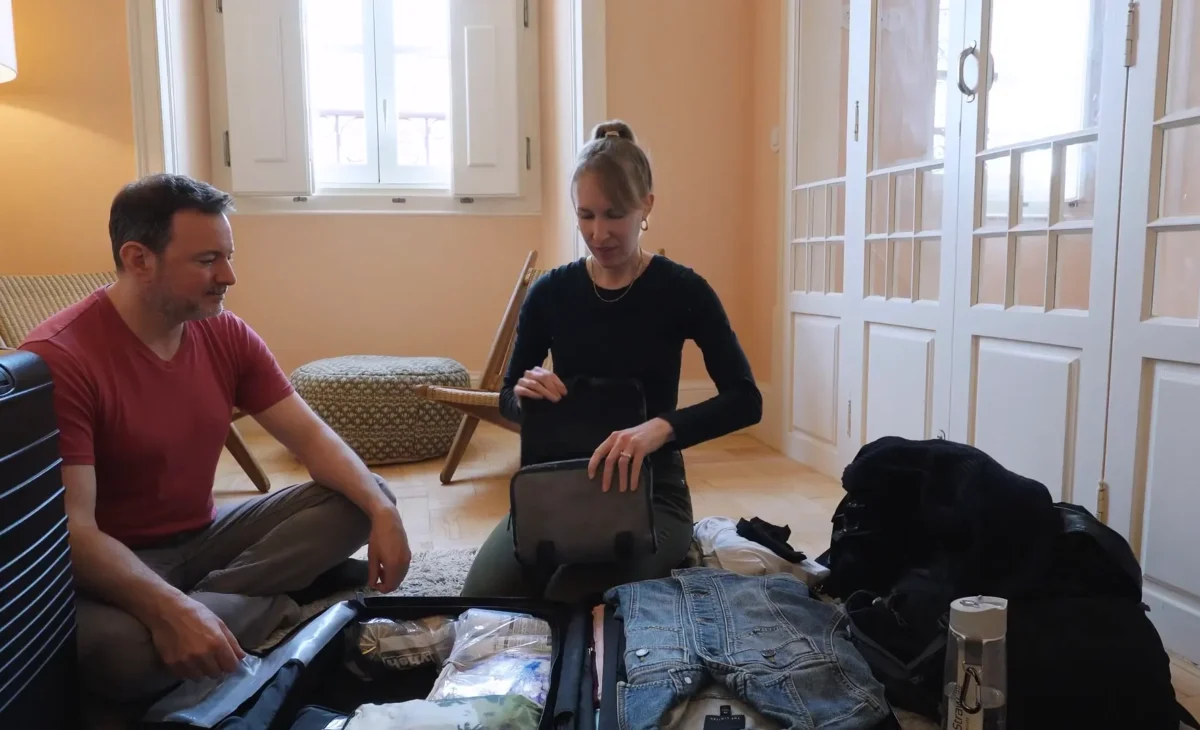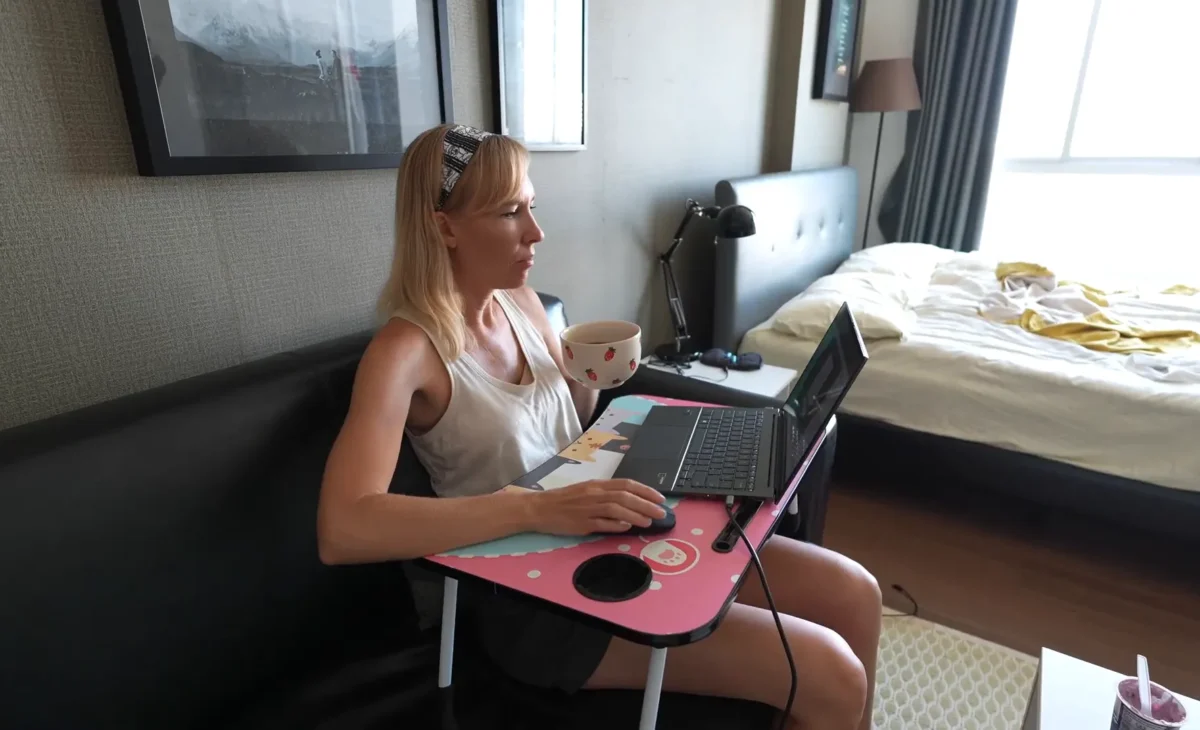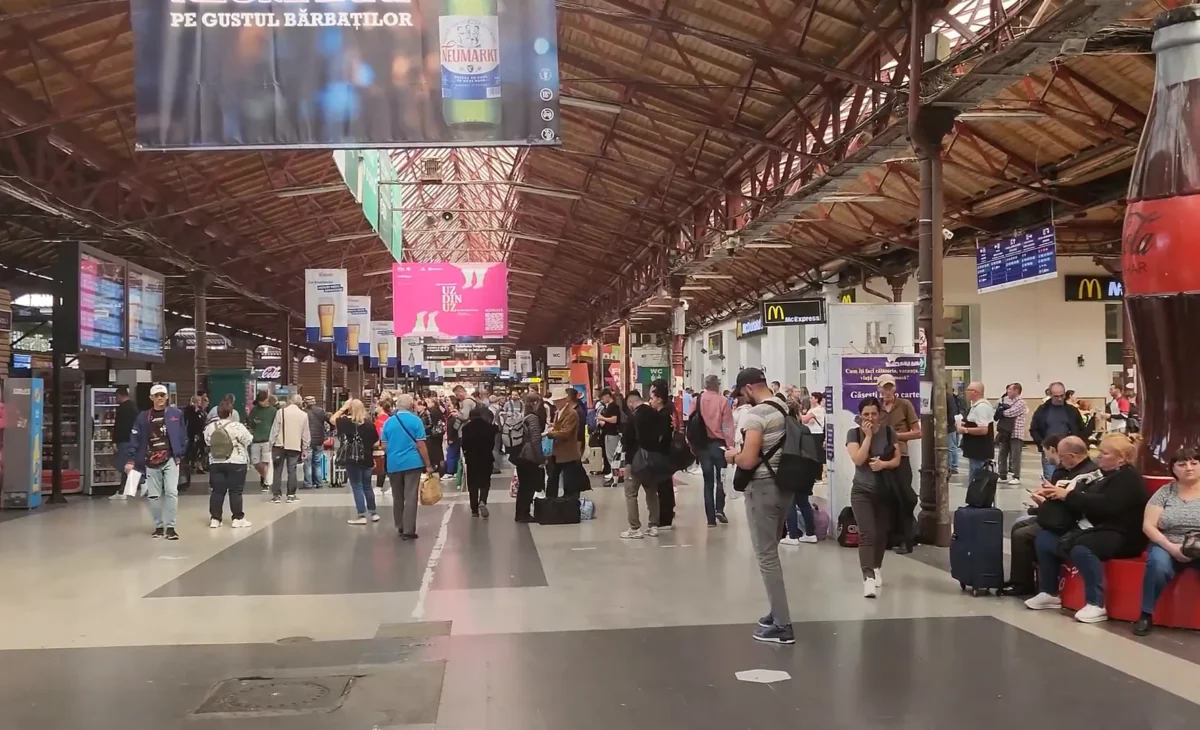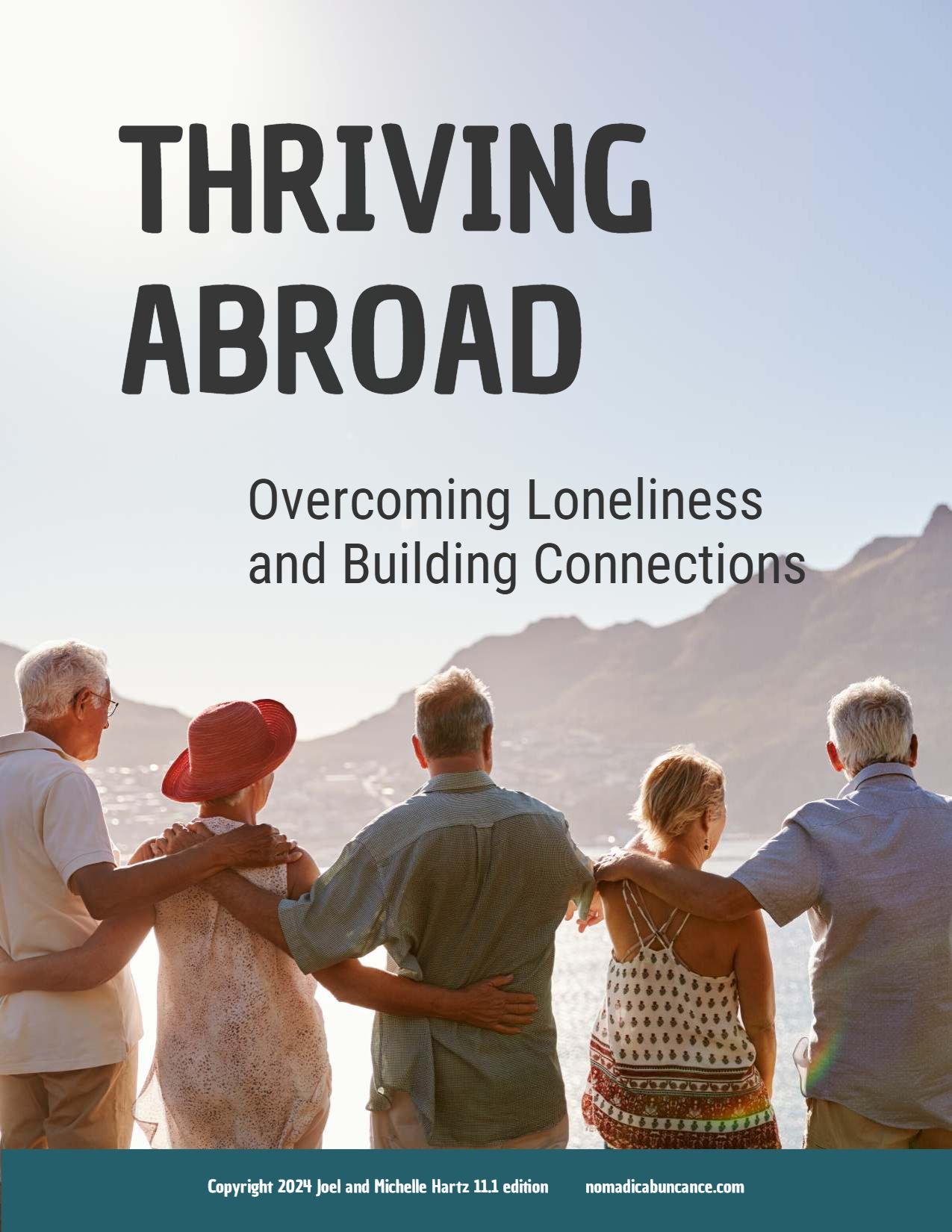10 Realities of Slow Travel: Honest Insights on Living Abroad Full-Time

By Joel Hartz
Disclosures
Use of affiliate and sponsored links help us to provide articles like these.
Affiliate disclosure: Please be aware that this article contains affiliate links, which means we earn a small commission at no additional cost to you. As an Amazon Associate we earn from qualifying purchases.
Slow Travel Living Abroad: More Hard Truths About Full-Time Travel
Hey there! We’re Joel and Michelle, and after over five years of full-time travel, we want to share some real talk about what slow travel living abroad truly looks like. Our mission? To help you live a more abundant life abroad, whether you’re working remotely or retired, by showing you not just the dreamy parts of travel but also the honest challenges that come with it.
If you’re curious about slow travel living abroad and wondering what it really takes to thrive on the road, this post is for you. We’re diving into some of the hard truths that many people don’t talk about but should definitely know before hitting the road full-time. And yes, there’s a little bonus truth at the end — see if you can spot it!
1. You Never Really Feel Settled
One of the biggest realities of slow travel living abroad is that you’re almost always packing up your life. Whether you’re moving every few weeks or stretching it out to a few months, you’re limited to what fits in a few suitcases — which, for us, means literally packing up everything we own each time we move.
This constant motion can be stressful. The key to managing this is embracing slow travel — spending one to three months or more in a single location. We’ve spent extended time in places like Portugal, Bulgaria, Thailand, and Albania, which really helps us feel more settled.

2. Research and Travel Planning is a Full-Time Job
Planning your next move sounds fun, but it’s actually a massive time commitment — especially if you’re working full-time while traveling. Booking flights, accommodations, and transfers can easily become a second full-time job.
And if you’re into travel hacking or using points to maximize your budget, expect to spend even more time researching the best deals, routes, and where to stay. Questions like:
- Should I stay in the city center?
- Is it near public transportation?
- Is the area walkable?
- What’s the weather like during my stay?
…all need answers before you decide.
3. Everyday Tasks Can Feel Overwhelming
Simple things like grocery shopping can turn into a scavenger hunt when living abroad. Finding your favorite breakfast foods — like Greek yogurt or granola bars — might take hours of searching in different towns.
Cooking after a long workday? We usually rely on easy go-to meals like chicken and rice, spiced up with local flavors. Or sometimes, we just grab a quick pizza, salad, sandwich, or kebab from a favorite local spot.
Other daily chores, like laundry or finding a reliable SIM card, add to the mental load. We’ve found that eSIMs are a game-changer, especially on travel days, so we don’t have to hunt for physical SIM cards every time we land.
4. Comfort on the Road is a Real Challenge
For Michelle, comfort is a big deal — especially with her sensitive back. Beds can be rock hard in places like Southeast Asia, and often the accommodations don’t come with comfy furniture or a proper workspace.
We’ve gotten creative: in Thailand, we bought extra comforters to soften the bed. In Europe, where kettles are common, we bring a French press along to make morning coffee just right.

5. Travel Days Are Exhausting
Travel days often start early and can stretch late into the night. Beyond the usual airport or train station chaos — crowds, immigration, luggage management — you might face delays or lost bags. Since you’re traveling frequently, these hiccups happen more often than on a typical vacation.
⚕ Never travel without being covered with International Travel Medical Insurance! We recommend this plan if under 50 years old and this one if over 50 years old
Jet lag is another challenge, especially after long-haul flights. Plus, you’re always carrying your entire life with you, so there’s the ongoing worry about the safety of your belongings.

6. You’ll Encounter Places You Don’t Like
No matter how much research you do, sometimes you’ll arrive somewhere and just not click with it. And that’s okay! But it does pose a dilemma — do you tough it out or leave early? If you’ve prepaid for several months, leaving means losing money, so it’s a balance between your budget and your happiness.
7. Missing Friends, Family, and Life Milestones
One of the toughest parts of slow travel living abroad is being away from loved ones during important moments — birthdays, weddings, or even the birth of a new family member. When we come home after long trips, those reunions feel extra special, but the distance can be hard.
It’s smart to schedule regular video or voice calls to stay connected. Some travelers choose to travel part-time, spending a few months abroad but still being home for longer stretches to keep those relationships strong.
Also, having an emergency fund ready to get you home quickly if needed is crucial, especially when dealing with unexpected family emergencies.
8. Managing Your Affairs from Afar
Even thousands of miles away, life goes on — bills need paying, mail arrives, banking happens, and investments need managing. Setting everything up online before you leave makes life so much easier. This includes banking apps, electronic mail delivery, and online bill payments.
9. Full-Time Travel Can Be Isolating
Traveling as a couple helps, but being in a new country where everything feels unfamiliar can still be isolating. Traveling in the off-season, like we did in Portugal’s Algarve during January and February, means fewer tourists and limited opportunities to meet others.
Over the years, we’ve met amazing people — other slow mads, locals, and expats — but finding those communities takes effort, especially when you’re moving often.
10. Maintaining a Routine is Tough
Adjusting to new cultures, different store hours, and time zones can throw your routine out of whack. For us, it usually takes a couple of weeks to settle into a new place. If your work has fixed hours back home, time zone differences can make things even trickier.
But with patience and adaptability, you can find your rhythm again.
Additional Considerations
There’s even more to think about: healthcare logistics, maintaining a healthy diet, staying fit on the road, and mental health and wellness.
Key Takeaways
- Slow travel living abroad means embracing constant change but pacing yourself to avoid burnout.
- Planning and research take serious time and effort, especially when balancing remote work.
- Everyday tasks can be surprisingly complex abroad, from groceries to laundry to connectivity.
- Comfort and routine are essential but require creativity and flexibility on the road.
- Expect to miss family and friends — staying connected requires intentional effort.
- Managing your affairs remotely is doable with the right online tools and preparation.
- Isolation and routine disruption are real challenges but can be mitigated with community and patience.
Bonus Hidden Truth
If you watched the video, did you catch the little bonus truth? If you’ve noticed, our clothes wear out fast because we wear the same outfits over and over again while traveling. It’s just part of the lifestyle — and yes, sometimes that means a torn shirt elbow here or there!

Slow travel living abroad isn’t always glamorous, but it’s incredibly rewarding if you know what to expect and prepare for the realities. Ready to embrace the adventure with open eyes? We hope this honest look helps you on your journey!
FAQ
Q: What is slow travel?
Slow travel means spending extended periods — usually one to three months or more — in one location to really immerse yourself and avoid the stress of constant moving.
Q: How do you manage work while traveling full time?
It requires good planning, flexible scheduling, and a comfortable workspace. Adjusting to time zones and maintaining routines are important to stay productive.
Q: How can I stay connected with family and friends?
Regular video or voice calls help a lot. Some travelers also choose to travel part-time to spend more time at home.
Q: What are some common challenges of full-time travel?
Challenges include frequent packing, planning, everyday logistics like groceries and laundry, comfort issues, travel exhaustion, isolation, and missing life milestones.
Q: How do you handle health care and emergencies while abroad?
It’s crucial to research health care options in your destinations, have travel insurance, and maintain an emergency fund for unexpected trips home.
Are you ready to embrace full-time or part-time travel, or is retirement just around the corner?
Join the tribe, and let’s kickstart your slow travel journey!

At Nomadic Abundance, we’re here to help you tackle the overwhelm of planning your new life abroad. Our membership offers the resources and guidance you need to make your transition to slow travel as seamless as possible.
Find out more information go to nomadicabundance.com or in video form on YouTube.
Thank you for supporting the site, Happy Wandering!
You’re almost there!
Enter your email below to get your FREE copy of the eBook: Escape The USA: How To Start Traveling and Live Overseas!
- Plan Your Budget: Cost of Living in North Macedonia for One Month - November 18, 2025
- Bulgaria Trip Report: Why we Keep Coming Back - October 29, 2025
- The Ultimate Guide to Slow Travel in Albania: Saranda & Beyond - October 6, 2025












